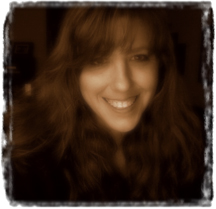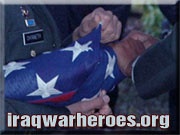
The assignment was simple. My fourth-grade classmates and I studied poetry and were instructed to create a book of poems, scrawled in chunky child’s printing between the thick, blue lines of wide-ruled paper, sandwiched between covers of mishapingly cut cardboard.
At the end of the assignment, we knew they’d be entered into the school district’s Young Author’s Competition. I was a smart kid, but school wasn’t easy for me. I had two strikes against me: an undiagnosed learning disability (central auditory processing disorder) and a boatload of emotional baggage. I could spell, but never got through the first couple rounds of the spelling bee because anxiety would kick in. And, by fourth grade, I’d been pulled out of advanced reading and placed in the “slow” group. My teacher didn’t understand that I wasn’t struggling with reading, but that sitting at the kidney-shaped table in the corner of a noisy classroom, trying to process her instructions, made my head swim. So by fourth grade, I had no idea I was still the smart little kid who’d been pulled out of kindergarten to attend second grade reading; I was just the kid who needed “extra help,” was “bright but didn’t apply herself,” and was “easily distracted.”
But I liked writing poetry and loved illustrating, neither of which required my ears to work, so I poured my heart into my little book of poems, adding it to the stack of books being sent to the district judges for the competition.
And, entirely to my disbelief, I was chosen to represent my school at the Young Author’s Conference.
That disbelief followed me the entire day of the conference – in each workshop; each poetry reading; each meeting with a real author – I quite expected to be, at any moment, tapped upon the shoulder and asked to leave “I’m sorry, but we made a mistake . . . you aren’t supposed to be here . . ." Still, that little cardboard bound book of poems was the beginning of my love for writing and, from that moment on, I wrote, filling spiral ringed notebooks with my thoughts and feelings; with stories and poetry, dark musings and kept secrets all through childhood, teenhood and beyond.
There’s a point to this story. Charlie has awarded me A Roar for Powerful Words—an award based on writing merit. He’s given me the honor with Kim Ayres from Ramblings of the Bearded One. There is still a part of me who reacts like the fourth grader I once was . . . surely a mistake must have been made to group me with two men who I consider fabulous, funny, insightful, through-provoking writers!
As part of the award, I have to list three things that I believe make writing good and powerful.
- Do not leave yourself out of your writing; even if you are writing fiction, a research paper or a letter to the editor. Drawing from your own emotions and experiences, even if your reader isn’t aware that’s what you are doing, gives your words authenticity.
- Don’t be afraid to expose yourself; your fears, your weaknesses, your humanness. Doing so connects you with your readers in a real and powerful way.
- Don’t talk down to your readers. Writing shouldn’t include endless digressions to explain your topic like you are teaching a 101 class. Assume your readers are intelligent people because they likely are.
And now it is my duty to pass along the award to another deserving writer. Elizabeth ** is an adoptee friend of mine. She’s a mathematician by trade, but writing seems to come naturally to her too. The girl can definitely use both sides of her brain! What I LOVE about her writing is its brutal honesty. She isn’t afraid to add a well, placed f-bomb where it belongs; to say something controversial or to expose her raw emotion. Her blog, Champagne and Tears, is a brave journey of a woman reclaiming her identity. When you read it, it’ll make you angry, make you laugh, make you cry and make you shout “You go girl!” You won’t walk away untouched.
**I discovered as I was writing this, Elizabeth's blog is currently on vacation, but that doesn't change the fact she deserves her award :)
 The assignment was simple. My fourth-grade classmates and I studied poetry and were instructed to create a book of poems, scrawled in chunky child’s printing between the thick, blue lines of wide-ruled paper, sandwiched between covers of mishapingly cut cardboard.
The assignment was simple. My fourth-grade classmates and I studied poetry and were instructed to create a book of poems, scrawled in chunky child’s printing between the thick, blue lines of wide-ruled paper, sandwiched between covers of mishapingly cut cardboard. 








